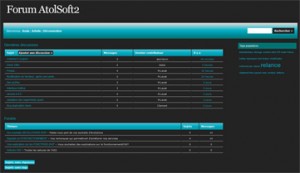The Civil Beat Editorial Board Interview: Honolulu Prosecutor Steve Alm
State Gets Another $20 Million In Lawsuit Over Computer Software Failure
Vaccines Necessary For UH Pupils This Autumn
The FBI Is Probing A Hawaii Defense Contractor’s Donations To United States Sen. Susan Collins
‘The Circumstances Is Critical’: Saving This Maui Beach Won’t Stay Effortless Or Cheap
Legislative Negotiators Consent To End Payday Advances In Hawaii By 2022
The balance would change the high-interest loans with installment loans that have reduced charges.
A bill to end pay day loans in Hawaii and change all of them with reduced interest installment loans is on its option to the complete home and Senate for a vote after legislative negotiators reached an understanding from the measure Tuesday afternoon.
The last form of House Bill 1192 enables customers to simply just simply take down an installment loan since high as $1,500 with a 36% yearly interest limit, Rep. Aaron Johanson stated, incorporating that loan providers may also charge a monthly cost as much as $35 with regards to the size of the mortgage.
“This is truly a huge ocean change in the wonderful world of financial justice. We realize that we now have a lot of people that are struggling in Hawaii paycheck that is living paycheck, specially exacerbated by the pandemic,” Johanson stated following the hearing.
“This will probably make sure that from the financing perspective we will have the ability to assist the individuals proceed through those unexpected economic problems,” he proceeded. “To me, this is certainly likely to be one of the greatest financial justice wins with this session.”
Sen. Rosalyn Baker, shown right right here in 2015, is pressing to reform loan that is payday for many years. Cory Lum/Civil Beat
HB 1192 would stage away Hawaii’s structure that is statutory payday advances — a short-term, high cost loan — because of the finish of the 12 months and replace the merchandise with an increase of regulated, reduced rate of interest installment loans in 2022.
“The installment loan is way better for the customer with not as accrued financial obligation and interest as time passes,” Johanson stated. “The current cash advance system is established against them.”
Sen. Rosalyn Baker has for decades been pressing to modify pay day loans in Hawaii, in which a 2005 analysis by hawaii auditor found a 14-day loan might have a lot of costs that when renewed during the period of a year, the yearly interest could lawfully be as high as 459%.
“What Hawaii was charging you had been 3 times greater than exactly what the exact same loan provider ended up being recharging customers various other states. We’d a very, really dysfunctional market,” she stated.
As other states cracked down on high interest levels, Baker’s reform efforts regularly met opposition into the home when confronted with critical testimony from payday financing businesses.
This current year, Pennsylvania-based Dollar Financial Group, which has cash Mart, supported the creation of installment loans while Maui Loan Inc., a locally owned business that provides pay day loans, continued to oppose getting rid of pay day loans.
Johanson stated the form of the bill authorized in seminar committee Tuesday had been influenced by present reforms in Virginia and Ohio https://speedyloan.net/payday-loans-va/abingdon/ and research by the Pew Charitable Trusts.
Johanson and Baker both credited Iris Ikeda, ?commissioner of banking institutions in the state dept. of Commerce and customer Affairs.
Among the issues with Baker’s reform proposals in past years had been that cutting the attention price from 459% to 36% would cause lenders that are payday walk out company. Lawmakers stated loan providers can select to supply installment loans alternatively and noted this product is essential to make certain those who don’t or can’t get loans from banking institutions nevertheless have actually choices when they require cash.
A 2019 study by the Federal Deposit Insurance Corp. discovered 3% of Hawaii households are unbanked, up from just 0.5per cent last year.

